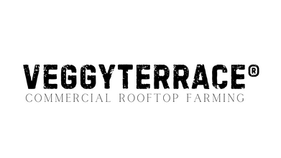Why We’re Different (and Why It Matters)
Say No to So-Called 'Organic Waste Converters'
Most “Organic Waste Converters” are heat-based incinerators that:
-
Kill beneficial microbes
-
Burn biomass, wasting carbon
-
Produce foul smell and unusable black powder
-
Need electricity, motors, and skilled operation
📛 These are NOT composters. They mislead, pollute, and fail users.


Smarter Eco-Living Begins Here
Three Natural Technologies. One Mission.

rejuWATER®
Zero-sludge, zero-power sewage treatment.
Read More

veggyBARREL®
Compact home farm to grow fresh food.
Read More
Say Yes to Nature - the TALLBOY® Way

.jpg)
-
Bio-mimicry of digestive system
-
No smell, no heat, no noise
-
Nutrient-rich compost daily
-
Used in landscaping, resale, or home gardens





Trusted by Communities, Loved by Nature
This project comprises of Branded Residences, Nikoo Homes Luxury Apartments, School, The Leela Hotel, Mall and SEZ'z. Riteways is the sole composting machine supplier. Read More..
Bhartiya City Township, Bangalore

Auroville considered as one of the finest examples of Sustainable Living in the world, uses TALLBOY® Composting. Matri Mandir is the heart of Auroville community and RITEWAYS is proud to be a part of this unique ecosystem to recycle organic waste. Read More..
Matri Mandir, Auroville

Instead of the usual hefty capital expenditure of constructing a series of tanks for an STP, RITEWAYS took a groundbreaking approach by leveraging their existing soak pits as the collection tank. This ingenious solution not only saved them a significant amount of money upfront but also reduced their operational expenses, making it a truly cost-effective wastewater treatment system. Read More..
Emerald School, Bangalore

An interesting initiative by Leitz Tooling's management! Utilizing unused roof space for organic vegetable farming and distributing the organically grown vegetables to their employees. Riteways, was called in to suggest and implement the pilot project. Read More..
Leitz Tooling, Bangalore




.jpg)










